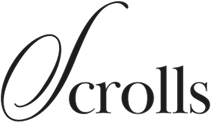Hi, in today’s article, I will be sharing my knowledge on how to write a journal.
The main objective of this article is to guide you on how to start journaling and use it as a tool to increase your productivity.
1. What is a journal and why maintain one?
A journal is a written or digital record where individuals document their thoughts, experiences, observations, or reflections over a period of time. It serves as a personal space for expressing emotions, tracking progress, setting goals or simply recording daily events.
It becomes a useful tool in your daily life as you get more clarity on your goals and purposes. It is an amazing tool that you can use for time management.
I started maintaining a journal because I wanted to track my goals, develop good habits, and make myself more productive and efficient.
And it did help me a lot. If you had asked me 3 years ago whether I would be able to write an entire article on my own with a clear plan, the answer would have been a hard no. It provided me with clear goals, I was able to express myself better, and I developed high self-esteem as I completed my tasks, planned routines, and managed time for all the important things in my life.
2. Types of Journals
There are different kinds of journals, used for different purposes.
There is a journal for each and everything that you want to achieve, or keep track of. You could have a:
- Diet Journal
- Dream Journal
- Gratitude Journal
- Gym/Exercise Journal
- Daily Routine Journal
- Business Journal
- Habit Tracker Journal
- Study Tracker Journal
- School Journal
- Personal Journal
And the list goes on. You can maintain as many journals as you want, as long as you can maintain all of them without wasting a lot of time, energy, and mental peace. However, maintaining too many journals at the same time can be a hassle.
You need not maintain all the journals in the same way as you maintain certain journals. For example, if you are maintaining 2 journals, one is a work journal and the other one is a personal journal. In the work journal, you will track your goals based on the work that you are doing at the moment. It will mostly be short-term but well-organized, as you will have work-related goals that are already defined, then you will plan your tasks accordingly. The personal journal will mostly be about your aspirations and ambitions, whether you want to get a promotion, have a better social relationship with your colleagues, go on that solo trip that you have always planned, or just a journal where you express your feelings and emotions towards a certain event. While reading, you must have realized that both types of journals are of different nature and should be maintained accordingly, because remember the overall goal of having a journal is to make your mind clear of your thoughts, as it will help in improving your efficiency in work or studies, relationship with friends, and your personal goals which you always wanted to achieve.
3. Where to write a journal?
Where to write a journal? A notebook, diary, or any fancy A5 notebook you can get on Amazon. Honestly, it does not matter.
When you are starting to write a journal, you can take any of your favorite notebooks and just start journaling.
You can try different types over a period of time, and figure out which one suits you best. As mentioned in the above section, there are many different kinds of journals you can write. Now you can use different notebooks for different journals, or you can use just one, it is up to you.
I use a single A5 notebook as a journal for all my tasks, as it is more efficient and less time-consuming to maintain and my whole life is organized in one place. I don’t want to look around different diaries to maintain my journals, as it becomes time-consuming, and too complex for me to maintain. My idea is to keep my journal short, simple, and efficient to use.
4. Journaling methods
In the previous sections, we have seen the Why, What, and Where to journal.
Now we will be looking at How to journal. Well, according to me, journaling can be categorized broadly into 2 categories - Bullet journaling or checklist journaling (as I call it), and Descriptive journaling.
Bullet or checklist journaling:
It is a method used when your goals are trackable and representable on a sheet of paper.
For example, if you want to develop certain good habits you can use a habit tracker journal. One of the ways you can track is by maintaining a checklist with a calendar to mark whether the habit has been performed or not. Your habits can be performed daily, weekly, monthly, or in any regular interval as you like.
Another common use of Bullet journaling is a To-do list, where you prepare a checklist of tasks that you have to accomplish and you either strike it off or put a tick on the checkbox.
With Bullet Journaling you can track many things like tracking your mood on a scale from 1 to 10, or a diet chart, a gym exercise chart, a sleep tracker, or a finance management tracker.
This type of journaling method is what I prefer to use the most as it is less time-consuming, and I can track in numbers which helps me visualize my progress and shortcomings. The number of hours I have studied on a subject, the distance I ran today, whether I read 10 pages of a book or drank four liters of water. I can keep a record of all these things in my journal and it hardly takes 30 seconds to write it down.
Descriptive journaling:
As the name suggests, it is used when you have to write your journal descriptively.
Many people use this kind of journaling to log their day-to-day lives and portray their feelings about a certain event.
You can write it in many different ways, two of the most common methods used are either write it as a story narrated by you or have a small conversation with the diary as if it is a person.
One famous example of this kind of journaling is The Diary of a Young Girl by Anne Frank.
Many of the greatest people who have ever lived have used this method to journal their thoughts, feelings, and experiences. These are some of the richest sources of history and philosophy, which have shaped human lives from time to time. Who knows one day the future generation will be looking at your journal to draw inspiration from your life.
5. Maintaining a journal
If you are a beginner in the world of journaling and someone like me who is busy and wants to become more productive, and efficient in time management to achieve your goals, you can start by including simple methods into your journaling habits, so that you do not get overwhelmed, as I got when I first started journaling.
The most important thing is to develop a habit of journaling. To develop a habit, you must make it accessible, simple to achieve, and do it regularly.
Many of you will not be interested in writing paragraphs daily just to log activities that you do every day, cause it takes time. When I first started journaling I would take around half an hour to two hours to write a journal. I could not sustain that for more than 4 days, and as any normal person would do I quit journaling, as I got overwhelmed and felt that I could not give more than 15 minutes to this.
When I again felt the need to organize my life I went back to journaling but this time I had clear goals.
I started simple and included only the most important things at the time like a to-do list, yearly, monthly, and weekly goals, a study tracker, and a habit tracker where I tracked only 3 habits - exercise, study, and meditation.
I made my productivity system in a way in which I was able to track tasks without taking a lot of time, and tried to complete them as much as I could. Surely there were episodes of procrastination and lack of motivation and discipline. But, here the key is consistency.
I heard from a dear friend about a phenomenon called the compound effect. In the words of Darren Hardy, the author of The Compound Effect - The compound effect is the strategy of reaping huge rewards from small, seemingly insignificant actions. It is a magical phenomenon, which all the greatest successful people who have ever lived, identified the advantages of this and practiced it.
6. Conclusion
I hope that by reading this article you understand how to write a journal.
I will say it again, you have to build a habit of journaling daily, and just like to build any other habit, the key is consistency.
You need to stay consistent in maintaining a journal. A Journal is the most effective tool for you to have a clear plan and to develop a productive life.


